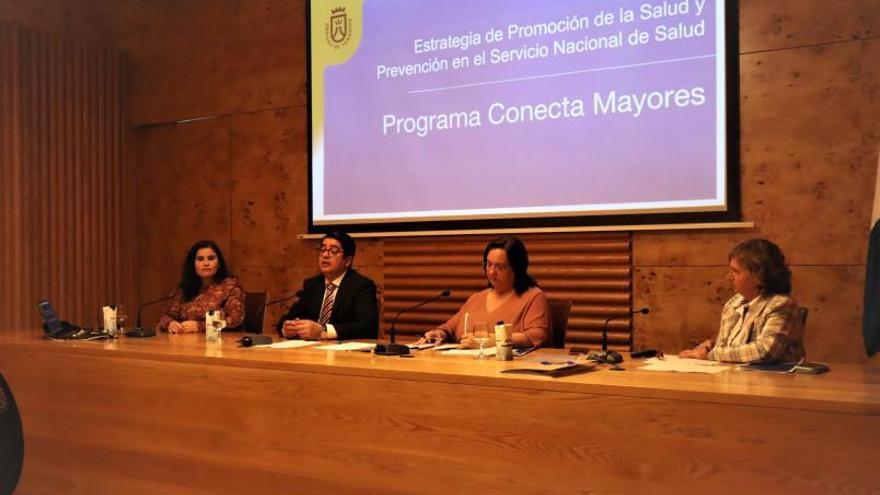
The council works on more than 30 projects to promote the Conecta Mayores program, whose objective is to change the care model for the elderly on the Island, so that the quality of life of this group is prioritized and assistance is eradicated. The president of the Island Corporation, Peter Martinand the counselor of Social Action, Marian Franquetdefend that this action plan will be developed within the framework of the national health promotion strategy in this area.
With the policy for the elderly as one of the pillars in the management of the Cabildo, Martín maintains that it must evolve and adapt to the situation. He rejects that the only alternative offered to the elderly is institutionalization and entertainment, so the Cabildo is working on proposals whose execution is not guaranteed. In Martín’s opinion, the model applied so far is “clearly insufficient” and advocates that “the elderly must be treated as adults and with a diversity of approaches.” Franquet specifies that the constitution of the intersectoral table for the promotion of health in the elderly is “an important step.”
To implement the national strategy in this area on the Island, the Island Government announces that it will promote specific actions in municipalities with fewer than 20,000 inhabitants and will prepare a diagnosis of the reality of the elderly in Tenerife. The counselor suggests that it is about taking into account “how to prepare people for retirement.” For Franquet, the main flaw in the policies in this matter so far is that there was no defined objective, a strategy.
Know the resources
The Cabildo will act from now on “as a coordinating umbrella” of the actions. For this, it is essential to carry out a “mapping” and to know the resources that Tenerife has and to prepare an insular catalog of actions in the field of health for the elderly. To do this, it will coordinate with the Canarian Government and the Canarian Federation of Municipalities, because “we have to balance the Island” since there are localities with an accumulation of resources for the elderly and others with very few cultural, sports, leisure and free time assets, pharmacies and health centers.
Included in this strategy is the Conecta Mayores de Tenerife program, which will aim to be able to “interlocate in two directions”. The purpose is “to treat the elderly as adults who have the right to decide how their lives should be,” insists the counselor.
Among the tools provided for this are the creation of a Chair for the Elderly at the University of La Laguna, a Gaia study to introduce the gender perspective among actions for women over 65, especially with regard to sexist violence, and promote social tourism and volunteering activities, with the creation of the Insular Office for the Elderly.
Martín y Franquet announces that imminent processing of the specialized home care service for the elderly, which will be joined by the home stay service. The purpose is to guarantee the autonomy and quality of life of the elderly in their environment, according to the counselor.















